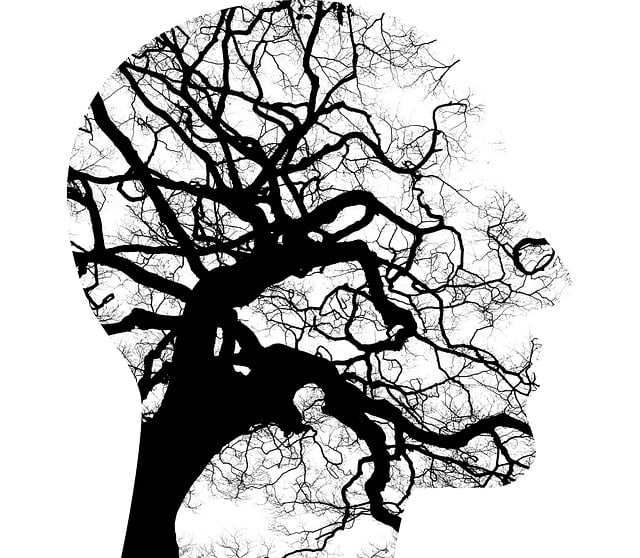Golden Abuse Survivors Therapy (GAST) equips survivors with coping skills, stress management strategies, and self-care practices for emotional regulation, trauma processing, and cultivating a positive mindset. This builds inner strength, prevents burnout, and promotes healing. GAST incorporates CBT, cultural sensitivity, and self-awareness exercises to empower individuals with adaptive behaviors while mitigating unhelpful mechanisms. Consistent self-care and peer support post-therapy ensure long-term recovery and resilience for Golden Abuse Survivors.
Coping skills development is a crucial aspect of empowering Golden Abuse Survivors, enabling them to navigate trauma and foster personal growth. This article explores the significance of coping mechanisms in survivor healing, offering insights into effective strategies. From understanding the impact of trauma to identifying healthy coping methods, we delve into the therapeutic journey. We highlight the role of therapy in teaching resilient coping skills and discuss long-term benefits for survivors, emphasizing the power of self-care and empowerment through knowledge.
- Understanding Coping Skills and Their Significance for Golden Abuse Survivors
- Identifying Healthy Coping Mechanisms: A Tool for Personal Growth
- The Role of Therapy in Teaching Effective Coping Strategies
- Building Resilience: Empowering Survivors Through Coping Skills Development
- Long-Term Benefits and Maintaining Coping Skills After Therapy
Understanding Coping Skills and Their Significance for Golden Abuse Survivors

Understanding coping skills is paramount when addressing the unique needs of Golden Abuse Survivors. These individuals often grapple with complex emotional trauma stemming from prolonged exposure to adverse circumstances, necessitating effective strategies for resilience and healing. Coping skills serve as tools to navigate distressing memories, emotions, and triggers while fostering a sense of inner strength and empowerment.
Through Golden Abuse Survivors Therapy, professionals equip survivors with valuable mind over matter principles and self-care practices. By adopting these coping mechanisms, survivors can develop a stronger ability to regulate their emotional responses, promote healing, and reclaim control over their lives. This process involves learning healthy ways to manage stress, process trauma memories, and cultivate a positive mindset—all of which contribute to the profound inner strength development that is essential for recovery and personal growth.
Identifying Healthy Coping Mechanisms: A Tool for Personal Growth

Identifying healthy coping mechanisms is a powerful tool for personal growth, especially for Golden Abuse Survivors (GAS) navigating therapy. These individuals often carry complex emotional burdens, and learning effective strategies to process trauma and manage stress is vital. Through exploration and self-awareness, GAS can uncover adaptive behaviors that foster mental wellness. This process involves recognizing the difference between healthy outlets like exercise, meditation, or creative expression, and unhelpful mechanisms such as substance abuse or isolation.
The journey towards resilience building and burnout prevention for healthcare providers, a key aspect of the Mental Wellness Podcast Series Production, can be enhanced by adopting these coping skills. By integrating effective strategies into their routines, professionals can better manage the challenges they face, ensuring they are equipped to provide quality care without compromising their own mental health. This proactive approach not only benefits the individual but also contributes to overall workplace well-being and productivity, particularly in high-stress fields like healthcare.
The Role of Therapy in Teaching Effective Coping Strategies

Therapy plays a pivotal role in equipping Golden Abuse Survivors with powerful coping skills to navigate life’s challenges. Through specialized therapeutic approaches, survivors can learn effective strategies tailored to their unique experiences and needs. For instance, cognitive-behavioural therapy (CBT) helps individuals identify and challenge negative thought patterns, fostering healthier emotional responses. Additionally, therapists guide clients in developing adaptive coping mechanisms like mindfulness practices and stress management techniques, empowering them to regulate emotions and reduce the impact of traumatic memories.
In the context of risk management planning for mental health professionals, therapists must prioritize cultural sensitivity in their practice. Understanding cultural backgrounds and incorporating culturally relevant interventions can significantly enhance coping strategies. This personalized approach ensures that survivors from diverse ethnic or social groups receive support that resonates with their experiences, promoting effective depression prevention and overall well-being.
Building Resilience: Empowering Survivors Through Coping Skills Development

Building resilience is a key component of empowering survivors of golden abuse, often referred to as Golden Abuse Survivors Therapy (GAST). By developing coping skills, individuals can navigate the challenges they face and foster a sense of empowerment and control over their lives. This process involves equipping survivors with tools to manage stress, regulate emotions, and maintain a positive mindset, even in the face of adversity.
Self-awareness exercises play a crucial role in this journey. Through introspection and reflection, survivors can identify their triggers, strengths, and coping mechanisms. Regular practice of these self-awareness techniques prevents burnout and promotes mental health stability. Moreover, understanding one’s emotional responses allows for better risk assessment, enabling mental health professionals to offer tailored support and prevent further harm.
Long-Term Benefits and Maintaining Coping Skills After Therapy

After completing Golden Abuse Survivors Therapy (GAST), individuals often wonder about the longevity of their newfound coping skills. One of the most significant advantages of GAST is its focus on fostering inner strength and resilience, which are essential tools for long-term recovery. By learning effective conflict resolution techniques during therapy, survivors develop a better understanding of themselves and their relationships, empowering them to navigate challenging situations with greater ease.
Maintaining these skills requires consistent practice and dedication. Survivors should continue to engage in self-care activities, such as mindfulness exercises and journaling, which promote mental health awareness and coping mechanisms. Additionally, seeking support from peer groups or joining advocacy initiatives related to mental health policy analysis can provide ongoing encouragement and practical strategies for managing trauma symptoms. This holistic approach ensures that individuals build and maintain their inner strength, even beyond the formal therapy setting.
Coping skills development plays a pivotal role in empowering Golden Abuse Survivors. By understanding and adopting healthy coping mechanisms, individuals can enhance their resilience and overall well-being. Therapy serves as a powerful tool, offering personalized strategies to navigate challenges effectively. This process not only fosters short-term recovery but also bestows long-lasting benefits, enabling survivors to maintain coping skills even beyond therapy sessions. For Golden Abuse Survivors seeking healing, prioritizing coping skills development is a transformative step towards a brighter and more resilient future.














